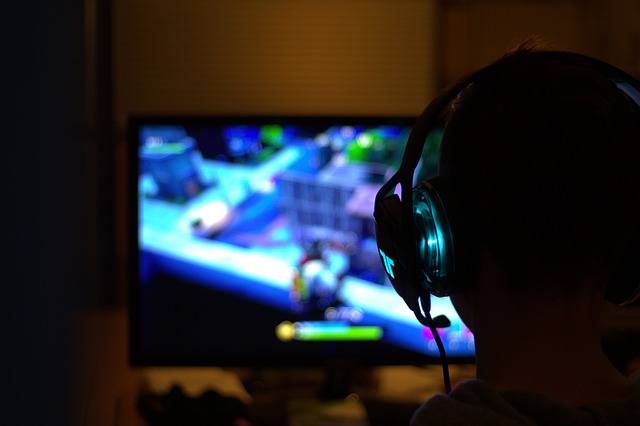
Is Playing Games a Hobby? All You Want to Knoww
Since you play games in your spare time, they are in fact regarded as a hobby. In actuality, a hobby can be anything you enjoy doing in your spare time.
You should be aware that not many people think playing video games is a good hobby because they think gamers are unfit and out-of-shape. If someone is open-minded, however, you shouldn’t have any problems telling them that you play video games.
According to a study released on Thursday, video games are extremely popular in the US, with 164 million people—or 65 percent of adults—playing them on a regular basis.
Is Gaming a Hobby?
Generally speaking, playing video games is an activity that people enjoy doing most during their free time. Games are a hobby for casual players. Contrarily, competitive (pro) gamers who use gaming as their primary source of income can no longer be referred to as hobbyists.
Of course, when money is involved, a hobby takes on more significance. However, a hobby remains a hobby, regardless of how ambitious you act or how much money you make from it. Only when you want to pursue your hobby professionally and earn a living from it does it become a serious endeavor.
Is Gaming a Popular Hobby?
Video games are being played by an increasing number of people in the USA and around the world. The media is seeing a rise in gaming as well. The fastest growing industry in the world is the gaming sector. More than 3 billion people are thought to be casual gamers who enjoy playing video games.
In the last 20 years, gaming has emerged from its hidden niche and entered the mainstream. The market and industry that support gaming have become brash.
Why Gaming is Actually An Excellent Hobby?
Stimulates Creativity
For both children and adults, creativity is a necessary skill. Do you realize how much creativity plays a role in both our day-to-day activities and actual employment? Even the most barren field in the world requires some creativity in how it functions, so don’t think you’re not using it. The development of intimacy in relationships and the prevention of future criminal tendencies in some people can both benefit greatly from creative playtime.
Some of the many games we have available feature incredibly original and creative concepts. There are a lot of games out there that really test your creativity. It’s not all mindless shooting, though those have their own advantages that we’ll discuss in more detail later.
Here’s why: We’re not just talking about playing God in The Sims and flexing your interior design muscle, but also about games that challenge you to think outside the box and solve situations in creative and unusual ways. Similar to virtual escape rooms, they include hints, mysteries, logical games, and a variety of other elements that you can play out in a secure virtual setting. That encourages you to use your imagination more frequently, which translates to tasks in your daily life as well.
Helps You Focus
The apparent lack of focus and dwindling attention span of today’s youth is one of the main problems they face. With our constant access to screens, everything feeds into our desire for immediate gratification. Actually, everything except for gaming.
As you can see, one of the few activities that still demands your complete attention is gaming. You cannot half-pay attention or scroll through your phone. Your mind must work to solve the puzzle that is being presented to you, which necessitates that you become fully immersed in the environment.
Here’s why: In general, gaming demands your attention more than any other activity, so you have to pay attention if you want to advance. Once you’ve gotten off track, it’s difficult to re-learn this skill, but it’s not impossible, and gaming can help. Playing a video game for even an hour can improve concentration.
Teaches You Problem-Solving Skills
This is a big one: playing video games is actually a great way to develop, hone, and practice your problem-solving abilities. And this is yet another example of something you use on a daily basis in a variety of contexts without even realizing it. Along with being useful at work, it is also useful in daily life. You might as well exercise that skill since, believe it or not, problem-solving is a legitimate skill and a crucial task in the real world.
You gradually lose these abilities as you age, but you can regain them by allowing yourself the indulgence of playing your favorite game for an hour or two each week. Problem-solving requires logic, critical thinking, deduction skills, and a host of other abilities.
Here’s why: You get to practice things repeatedly, learn from errors, attempt various solutions, and incorporate fresh approaches to what you’ve already tried. Consider it as low-risk problem-solving practice that ultimately benefits your ability to solve problems in the real world.
Helps Train Your Reflexes and Hand-Eye Coordination
I promised we’d talk about shooters in a moment. So these are the ones that have the worst reputations for being violent, dangerous, for influencing children’s mental health, for encouraging unhealthy tendencies, and for having a variety of other fear-inspiring associations.
Actually, reality appears to be very different. Not only is there no solid evidence to suggest a link between playing first-person shooter games and having violent tendencies, but these games are also a great way to hone your reflexes and enhance hand-eye coordination.
Here’s why: You must maintain a constant state of alertness in a game like this because you never know when the enemy will emerge from a corner and begin firing at you. As a result, you must be ready to identify the enemy and shoot them before they shoot you. You need quick reflexes, but you also need good judgement because you don’t want to shoot at a teammate when you shouldn’t.
Increases Brain Flexibility
It’s important to train and practice your brain flexibility because it’s one of those things you either use or lose. What’s a fantastic way to accomplish that, by the way? Games on the computer, specifically strategy games. A study was able to show that playing strategy games in particular can boost this kind of cognitive flexibility and aid you in everyday tasks, especially those that require multitasking or switching from one thing to another.
Here’s why: It turns out that video games that rely on exercising your strategic muscles also train the area of the brain that is in charge of that switch, as well as creative problem solving. It’s great to have something that can prevent this regardless of age because this type of cognitive flexibility deteriorates with age.
How Many Casual Gamers in the USA?
According to studies, more than two thirds of Americans regularly play video games. This translates to approximately 177.7 million gamers, according to estimates.
Every country in the world is seeing a rise in gaming popularity. Anyone who frequently plays video games, whether on a computer, a console, or a mobile device, is referred to as a casual gamer. Through mobile devices or smart TVs, almost every home in the USA has access to the opportunity to engage in the pastime of gaming.

Who Does Gaming?
The majority of the time, gaming is a pastime that those without day jobs can engage in more frequently. However, almost all facets of society now accept gaming as a pastime. The exception is older individuals without technical knowledge. The percentage of non-gamers is getting smaller.
From housewives or househusbands to managers of large corporations, gamers span the demographic spectrum. Even though it is still largely taboo in the workplace, gaming has taken on a significant role whenever people discuss it informally.
The different types of gamers are numerous. In a future article, we’ll discuss that.
Why is Gaming the Best Hobby?
With virtual and augmented reality, as well as current technological advancements, anyone can realize themselves in the world of gaming and assume any role they can think of. Gaming actively transcends physical and mental boundaries, whether it be as a racecar driver, pilot, animal, or imaginary creature. This variety and chance for interaction cannot be found in any other hobby.
This hobby can be directly experienced once one has access to a browser and the Internet. As a result, the entry-level is much lower than for other hobbies, which require the purchase of numerous expensive pieces of equipment.
Is Gaming a Healthy Hobby?
Scientific research has shown that playing video games can improve psychological health. Casual gamers do not generally lead unhealthy lives compared to non-players. Esports participants have a 21% healthier life expectancy.
How Many Hours of Gaming is Okay?
There is no set time limit for recreational activities because, in general, the same principles apply to all of them. A hobby takes a back seat to obligations and duties. Gaming must not have a detrimental effect on one’s physical or mental health.
For children under the age of five, the WHO has general recommendations regarding media consumption. Personal circumstances are always important, especially for older kids or adults. There are no rules, and playing video games is not inherently dangerous. Time for other, possibly more important activities decreases or disappears as gaming time increases. Naturally, this may have negative consequences or even result in pathological behavior. But this holds true for any hobby.
Is Gaming a Waste of Time?
When there are no personal benefits and another activity would have been more beneficial, more important, or even necessary, gaming is typically viewed as a time waster.
In this situation, there are two extremes. Gaming as a hobby that generates income is one thing. Pathological gaming, on the other hand, is when obligations are ignored or health problems are accepted.
Let’s discuss the advantages of gaming that make this pastime so fun.
What Are the Benefits of Gaming?
A lot of people believe that gaming is a stress-relieving counterbalance to social, academic, and professional pressure because it has such a positive psychological impact. Certain advantages in reaction time, motion recognition, social interaction, communication, decision-making, and concentration, for instance, have been scientifically proven. However, these claims almost always refer to particular, constrained scenarios and, in most cases, to particular game genres.
Which Hobbies Have Similar Characteristics?
Playing video games is typically a seated activity. Gaming is still evolving, though, into an activity that involves active movement thanks to virtual and augmented reality, as well as motion detection. Every time they play a video game, they are actively reasoning and choosing. The majority of active hobbies can therefore be compared to gaming.
Why Not Just Watch TV?
A passive and uninteresting activity is watching television. It doesn’t stimulate your brain the same way a video game would. Watching TV doesn’t challenge you, and you don’t meet any new people.
Because they give you the chance to push yourself, interact with interesting people, and discover new things, video games are a much better form of entertainment. While other pastimes may provide advantages comparable to those of video games, your community may be small and inaccessible. Your neighborhood and hobbies are always accessible with video games.
Why not give it a go?


